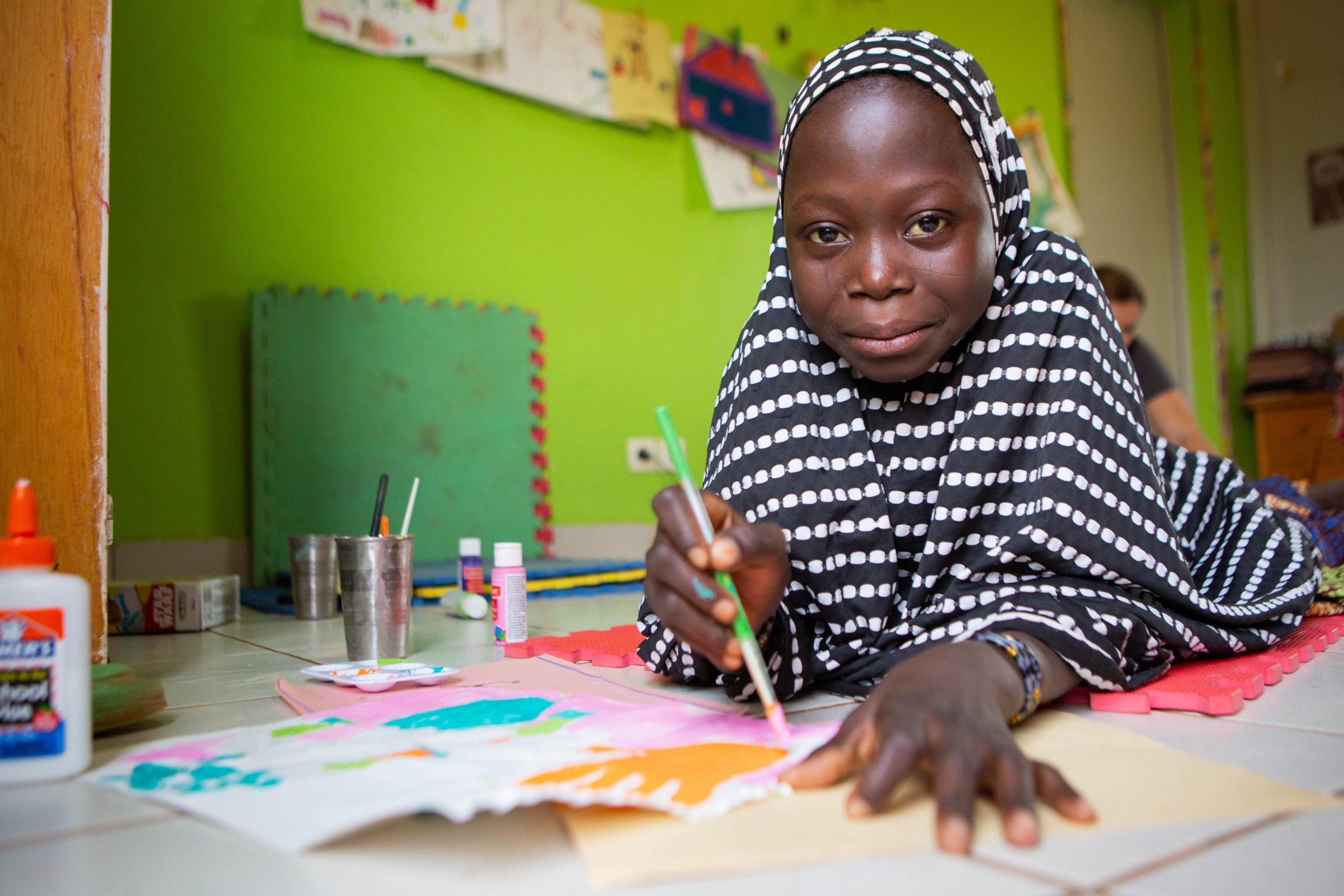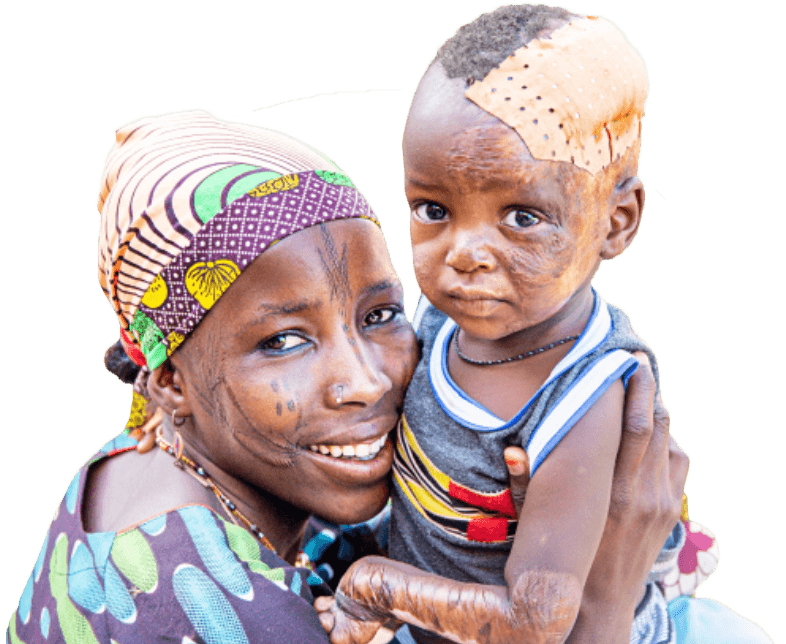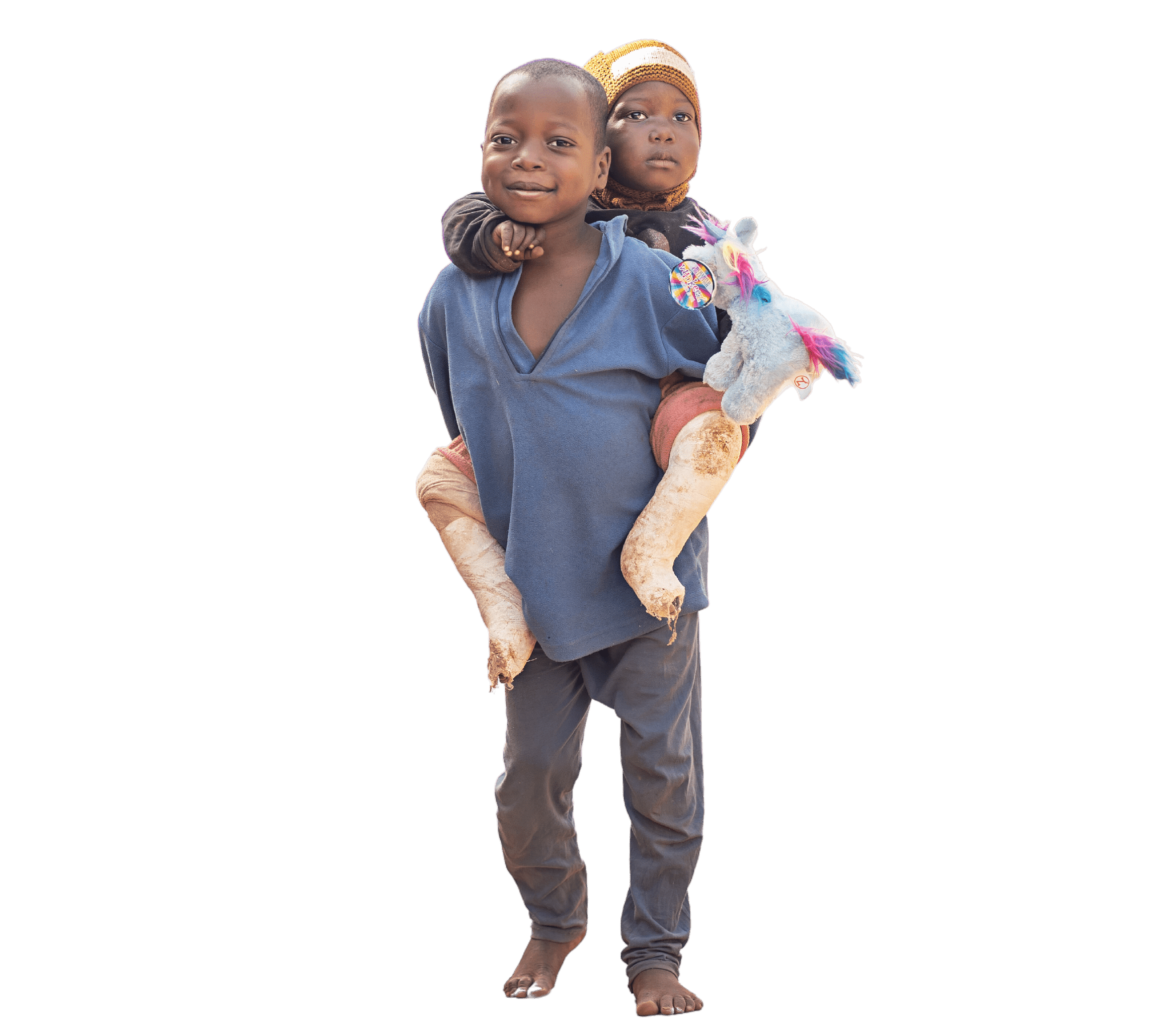There are three young patients and two adults in the sunlit art therapy room nestled across from the main ward of CURE Niger. It’s a typical Monday afternoon, and Georgiana has just given the patients their prompt. “Imagine you are a bird and can fly anywhere – now, draw what you see.” Salamatou, a member of the spiritual team, translates the instructions, and once the patients understand, they nod and get to work.
CURE Niger is generally a boisterous place, but small-group art therapy is different. Oftentimes mellow jazz music is playing, and it is generally quiet because the patients are focused on their projects. It’s a quiet party, but a popular one nonetheless. “We don’t take this popularity for granted,” says Georgiana. “In the west, kids aren’t banging down the doors to come to art therapy, but here they are, and they keep coming back.”

CURE Niger is a pediatric hospital providing surgeries for children suffering from treatable disabilities. With these physical ailments come a whole maelstrom of emotional hardship. In Niger it is normal, even within a family, to call a disabled person a gourgou, or a cripple and not even learn the person’s real name. It’s also normal for CURE Niger patients to have been ostracized and bullied at school, and more often than not they drop out. It’s also fairly common for entire villages to pronounce these kids cursed and turn their backs on them and their families.
It’s not a huge surprise that our patients have a lot of difficult emotions to work through. “That’s why we’re here,” says Georgiana. “We are about giving kids positive building blocks for both emotional maturity and healthy relationships with themselves and others, many of our patients never got that ever!” The most foundational building blocks generally have to do with oneself. “For our patients, art therapy is largely about discovering the person they really are, learning how to see that person well, and talking positively towards themselves,” explains Georgiana. It’s important kids learn to replace the lies they’ve believed about themselves and the negative words they’ve heard over and over and over again, with the truth that they’re a unique and important creation of a good Father,” says Georgiana, “And, we invite them to start looking at themselves the way the Father does.”

Towards the end of the session in which patients are asked to draw what they see while flying, several kids started to cry. “Their tears took us by surprise at first,” says Georgiana. “Even the patients themselves were surprised, but we find that especially with these imaginative exercises, kids really get emotional.” It’s sort of like opening a faucet to the subconscious– if there is enough pressure in the pipes, whatever’s inside will flow out.
This might have been the case for Koubra, one of the long-term patients here at CURE Niger. “At the end of this session about flying, she just couldn’t stop crying,” Georgiana recalls. “It turned out she really missed her family, and she had been battling an infection over the weekend. Her best friend was also about to go back home and leave her here.” None of these things seem to have anything to do with flying, but the exercise gave her a chance to explore and process her emotions.
Connecting the dots and getting emotional is part of what patients experience in an art therapy session. “It was good for Koubra,” Georgiana told us later that afternoon. “After she cried, we could see she really felt better.” And, that’s what art therapy is really about – creating a safe space where patients can release things into the light, things that may have been buried for a long long time. “We tell them it is ok to cry, and we will not judge them. It creates an atmosphere of trust, a space to let down emotional walls that have been built up over time. And, that’s important for our patients, who may have never before had that emotional freedom in their lives.”

Art therapy can be used to help with many things including keeping us busy while social distancing during the virus outbreak. We can create beautiful things to take our minds off of the insecurities we feel and the instability of the world around us
About the CURE Children’s Hospital of Niger
CURE Niger has been a place of hope since opening its doors in 2010. Ours is the first and only hospital in the country to provide Christ-centered care and charitable surgeries for children with treatable disabilities. Our teaching hospital has 58 beds, two operating rooms, and an outpatient clinic. In addition to world-class medical care, our team ministers to the emotional and spiritual needs of our patients and their communities.


